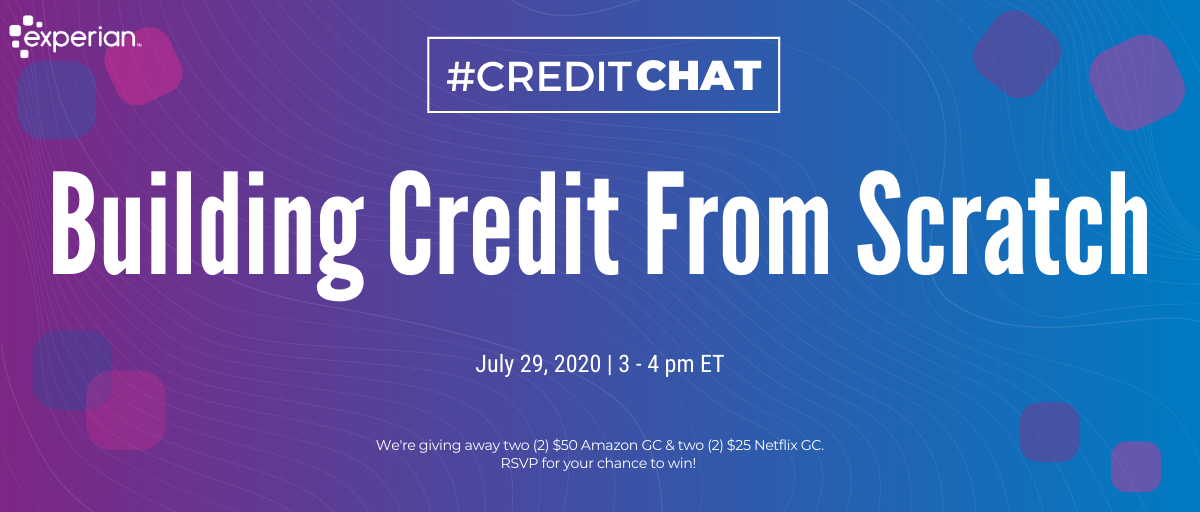Building Credit From Scratch

The panel included Rod Griffin: Senior Director, Consumer Education and Advocacy, Experian; Christina Roman: Consumer Education and Advocacy Manager at Experian; John Ulzheimer – Author and Credit Expert; Forbes Advisor; Beverly Harzog: Credit Card Expert and Consumer Finance Analyst for U.S. News; Paulina Likos: Investing Reporter at U.S. News; Alicia R. Hudnett Reiss: CERTIFIED FINANCIAL PLANNER™; Todd Christensen: Education Manager at Money Fit by DRS; Alexandria White: Credit Cards Reporter at CNBC Select; Sara Rathner: Credit Card and Travel Expert, NerdWallet; Molly Ford-Coates: Founder, Ford Financial Management; Ryan Luke: Personal Finance Blogger; Gerri Detweiler: Director of Education at Nav Inc.; Kembala Evans: Financial Coach, Speaker, and Author; and Take Charge America.
Questions We Discussed:
Q1: How do you check your credit scores?
Q2: Does checking your credit score lower it?
Q3: What affects your credit scores?
Q4: What are the benefits of having a good credit report and credit score?
Q5: What are the minimum requirements for a credit score?
Q6: What are some tips for establishing credit when you have no credit history?
Q7: How do you build credit with a credit card?
Q8: How do you build credit without a credit card?
Q9: What are some financial behaviors and credit mistakes to avoid?
Q10: Any last-minute tips for building credit from scratch?
Retweet these insights from our community:
A1. You can get your Experian credit score free anytime online. You will also get a list of the factors most affecting your score at that moment. https://t.co/WwEu2fiR0W #CreditChat
— Jennifer White (@Jennifer_Wwhite) July 29, 2020
A2: Checking your credit score (or your credit report) has no impact on your score. It’s called a soft inquiry. A hard inquiry, though, would impact your score. #creditchat
— Beverly Harzog (@BeverlyHarzog) July 29, 2020
A3. This article from Ask Experian highlights the factors that impact your credit score: https://t.co/dftPCOAKY0 #CreditChat
— Christina Roman (@Teena_LaRo) July 29, 2020
A4: The best thing about having a good #creditscore is easier approvals, deposits waived, lower and more attractive interest rates on financial products. Credit could be a factor in job decisions too. #creditchat
— Kembala Evans (@Kembala) July 29, 2020
A5: For a FICO score, you need at least one open account and one account reported to the credit bureaus in the last 6 months. For VantageScore, at least one open account (but can be open for less than 6 months). #creditchat
— Sara Rathner (@SaraKRathner) July 29, 2020
A6: @Experian just launched a new feature for Experian Boost that allows you to get credit for on-time #Netflix payments, as well as utility and telecom bills. It’s completely free to use. #CreditChat https://t.co/svBJZqcLHB
— Alexandria White (@awhite_credit) July 29, 2020
A7. To build good credit, keep your utilization ratio very low and make your payments on time each and every month. #creditchat
— Ford Financial Management (@swansystemhome) July 29, 2020
A8: Whether you take out a federal or private student loan, you can start building your credit score by making monthly student loan payments while you’re still in college and continuing this practice after you graduate- helping you build credit without a credit card. #CreditChat
— Financial Beginnings USA (@finbeg) July 29, 2020
A9: Avoid keeping a balance on any credit cards – you’ll end up paying a lot in interest. Once I saw the amount I was paying in interest each month, I was a lot more motivated to get my card paid off. #CreditChat pic.twitter.com/PMBfVGGWBQ
— Carly Owens (@magicalcarly) July 29, 2020
A10: Take time to learn how to use #credit responsibly and you’ll reap the financial rewards. Be patient and be consistent with on-time payments. Do what it takes and you’ll have a great #creditscore #creditchat
— Beverly Harzog (@BeverlyHarzog) July 29, 2020